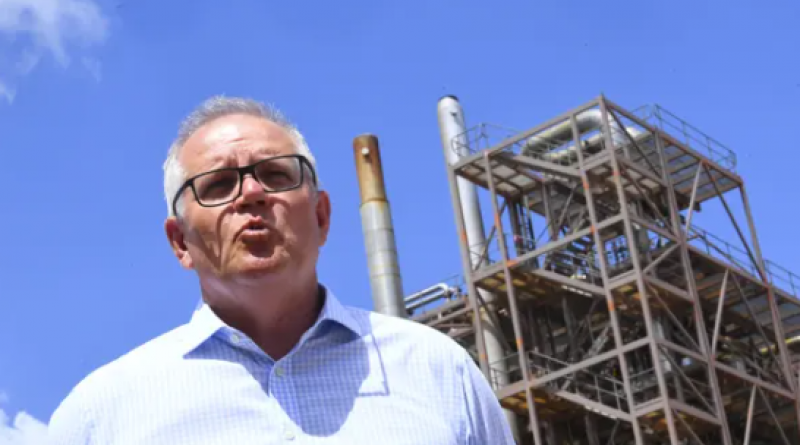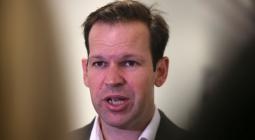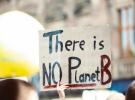Australia accused of 'shamefully' holding back global action on climate change.

United Nations calls on all countries to have ‘concrete plans to phase out fossil fuels as fast as possible’
Australia has been accused of “shamefully doing nothing” and weighing down global action after a UN analysis found national pledges to cut greenhouses gas emissions over the next decade have barely begun to do what is necessary to tackle the climate crisis.
The assessment of emissions reduction plans submitted to the UN by the end of last year found if all were fulfilled they would cut global CO2 by only 1% by 2030, compared with 2010 levels.
The Intergovernmental Panel on Climate Change has advised a 45% cut is needed over this time to limit global heating to 1.5C above pre-industrial levels.
While some major economies such as Britain and the EU offered substantially increased short-term commitments late last year, others made only incremental shifts and some, including Australia, re-submitted the same targets put forward at the Paris climate conference in 2015. Further pledges are expected this year, including from the two biggest emitters, China and the US.
Scott Morrison has said his government does not intend to change its 2030 target – a 26-28% cut, compared with 2005 levels – despite rising pressure for all countries to commit to doing more before a major climate conference in Glasgow in November.
Patricia Espinosa, the executive secretary of UN Climate Change, called on all countries, including those that submitted their commitments last year, to reflect on the new assessment and lift their ambition. “We need concrete plans to phase out fossil fuels as fast as possible,” she said.
Mohamed Adow, director of the thinktank Power Shift Africa, said it was staggering how far countries were from dealing with the crisis given the rhetoric from leaders about the need to act.
He grouped Australia with Brazil, Japan, Mexico and New Zealand as countries that had “shamefully done nothing” in recent pledges. “This state of affairs cannot continue and we need to see things change dramatically,” he said.
Tasneem Essop, the executive director of the global Climate Action Network, said: “With their woefully weak climate targets, big emitters like Japan, Australia and Brazil are weighing down overall global ambition when in fact they should be leading.”
Greenpeace International’s executive director, Jennifer Morgan, said the US and China must make commitments before a leaders’ climate summit hosted by Joe Biden in April that would “give us cause for hope”, and called on Australia and Brazil to rein in fossil fuel and industrial agriculture interests, respectively.
A spokesperson for the emissions reduction minister, Angus Taylor, said Australia’s emissions had fallen faster than many comparable countries.
Government data released on Friday found Australia’s emissions were down 4.4% in the year to September, in part due to the short-term impact of Covid-19 lockdowns and the drought, and 19% since 2005. But official projections in December suggested Australia was not on track to meet its 2030 target.
Bill Hare, the chief executive of Climate Analytics, said Australia was being called out for its “almost complete lack of action”. He said the Morrison government should set a science-based target for 2030, which meant an emissions cut of more than 60%.
“As we get closer to Glasgow, we’ll see big players like the US and China stepping up, and Scott Morrison’s government finding itself isolated amid a growing threat of carbon border taxes and increasing diplomatic and public pressure,” he said.
The UN report clarifies the gap between the growing mass of countries promising to cut emissions to zero by mid-century, and the short-term commitments they have so far been put forward.
More than 100 countries including all G7 members have now pledged net zero emissions by 2050, and China has made that commitment for 2060, but short-term goals remain a work in progress.
Britain and the EU have set stronger 2030 targets – 68% and 55% compared with 1990 levels, respectively – the US has promised to announce a new target by April and it is expected Japan, China and South Korea will set short-term goals this year after each committing to net zero in late 2020.
The US and Britain have pledged to take global leadership roles in the lead-up to the Glasgow summit in pushing for stronger targets and immediate action plans.
Morrison has shifted his rhetoric as climate targets have been increased elsewhere, but resisted the push to commit to doing more and said only that he hoped Australia would reach net zero emissions as soon as possible, and “preferably by 2050”. The suggestion he might go further and set a formal target has triggered outrage from some backbench government MPs from the National party.
Biden’s climate envoy, John Kerry, has acknowledged “differences” between the US and Australia in tackling the climate crisis while calling for a faster global exit from coal-fired power.
In Canberra this week, top diplomats from Italy and the UK emphasised the world needed to confront the climate crisis decisively after three decades of inadequate action.
Speaking at a climate ambition event at the Italian embassy on Wednesday, its ambassador to Australia, Francesca Tardioli, said each country had a “great responsibility” to implement concrete and lasting solutions.
“A lot has been achieved for sure, but not enough – not at all – to keep global warming within this threshold and now we have little time left,” she said. “Therefore, we need to act quickly and decisively and with new levels of ambition if we want to be successful.”
The British high commissioner, Vicki Treadell, told the same event the Glasgow summit would be “about making the tough decisions and carrying our people with us”.
The EU ambassador, Michael Pulch, said the bloc was encouraging all countries to raise their level of climate ambition, reflecting that global heating was a global problem that needed global responses.
He praised Australian states and territories for committing to net zero by 2050.
Australia’s environment minister, Sussan Ley, told the event the government’s commitment to the Paris agreement had not wavered and reiterated that it would “preferably” achieve net zero by 2050.
26 February 2021
The Guardian





